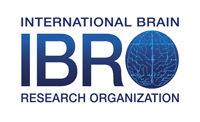
Photo from archive.org
Alzheimer's disease (AD) is the most common neurodegenerative disease; thus, the search for a cure or causal therapy has become necessary. Despite intense research on this topic in recent decades,… Click to show full abstract
Alzheimer's disease (AD) is the most common neurodegenerative disease; thus, the search for a cure or causal therapy has become necessary. Despite intense research on this topic in recent decades, there is no curative therapy up today, and also no disease-modifying treatment has been approved. As promising approach passive immunization strategies have thereby come forth. In this study, we focused on naturally occurring autoantibodies against the AD-associated peptide amyloid-β. These antibodies have already reported to show beneficial functions in vitro and in mouse models of AD. However, their availability is limited due to their low abundance in peripheral blood. In a recent study, we were able to generate four recombinant antibodies against amyloid-β. In the present study, we tested these antibodies in ELISA and SPR assays for their binding behavior and by aggregation- and phagocytosis assays as functional evidences to characterize their amyloid-β-related neutralizing and clearance abilities. Further ex vivo assay on organotypic hippocampal slice cultures gave first evidence of microglial activation and inflammatory features. The tested recombinant antibodies in IgG format showed, in comparison to naturally occurring autoantibodies against amyloid-β, insufficient binding capacities and -affinities. However, after conversion of one antibody into a single chain format multimerization of the scFv-Fc construct, the investigated binding capacity and -affinity showed improvements. Further functional assays predict a protective effect of this antibody. Although, all four recombinant antibodies showed binding to amyloid-β, promising features were only detectable after conversion into a multimeric format. The multimeric scFv-Fc antibody exhibited thereby strong impact on amyloid-β clearance and inhibition of oligomerization.
Journal Title: Neuroscience
Year Published: 2021
Link to full text (if available)
Share on Social Media: Sign Up to like & get
recommendations!